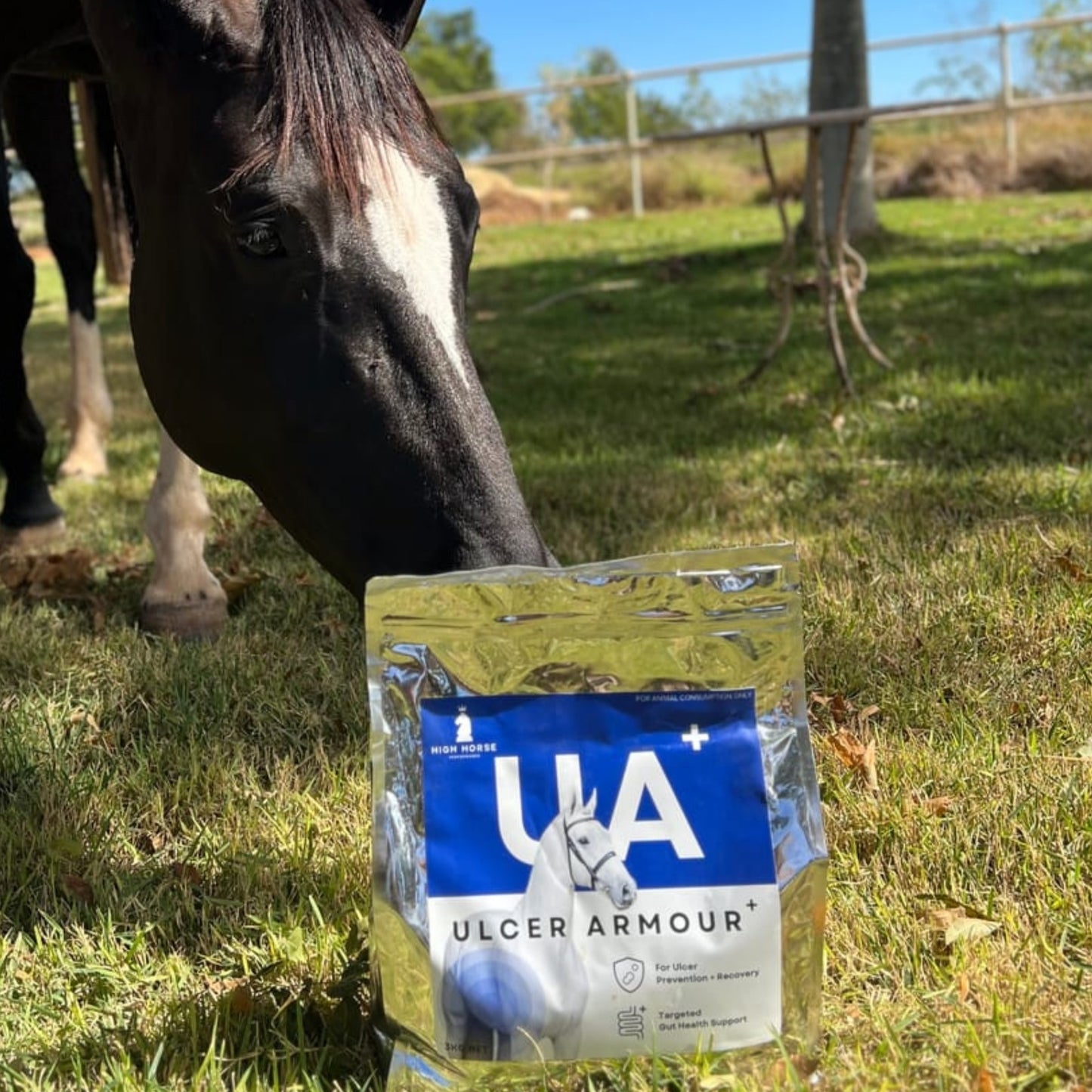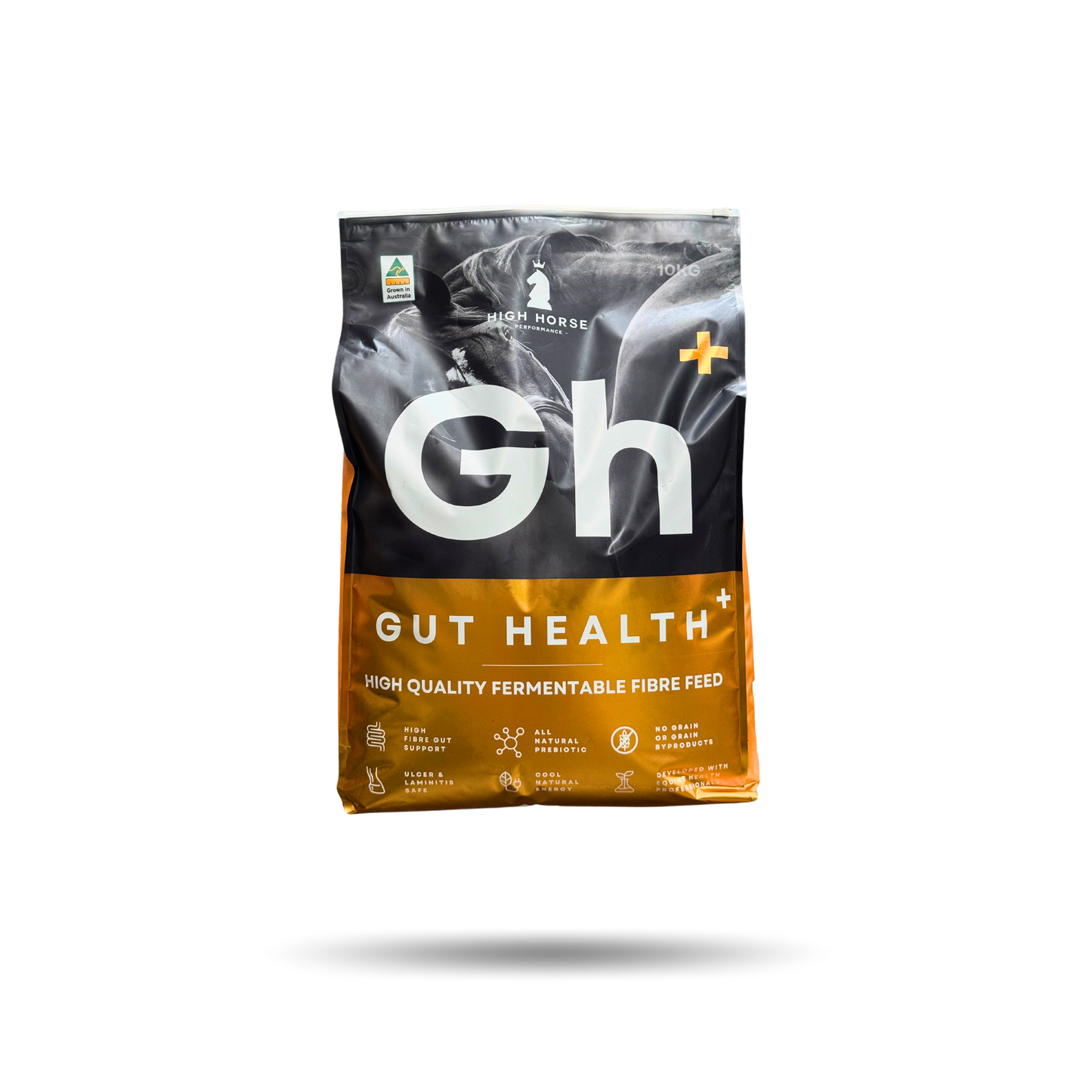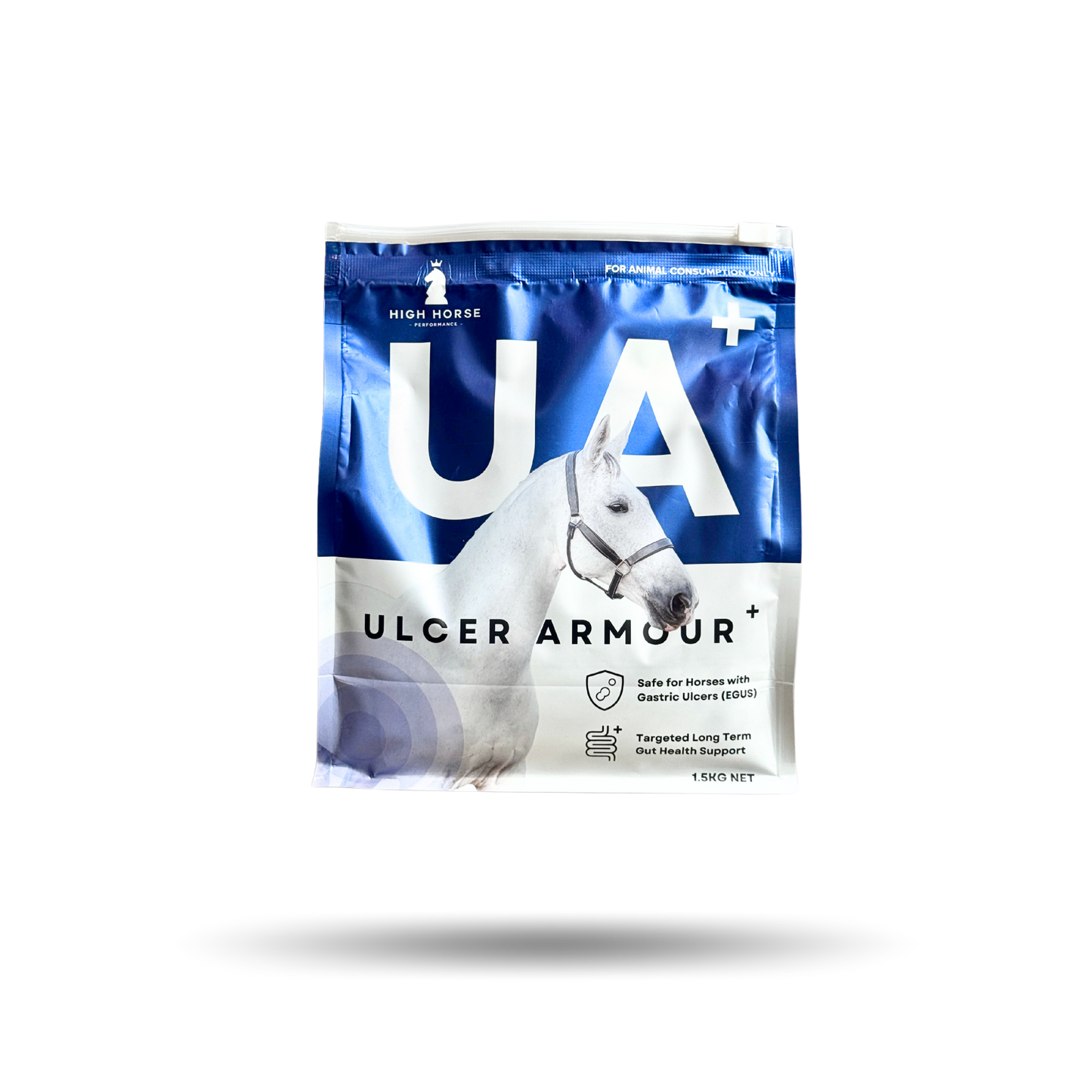Buy your weekday smoothies and get your weekend ones for free. (7 for the price of 5!)

Have You Checked Your Horse’s Gut Health Lately?
Gut health is a fundamental aspect of equine well-being, and it's not just a trend—it's vital to your horse’s overall health. With a delicate digestive system, horses require careful attention to support optimal gut health. Let’s explore how the equine digestive system functions, what happens when things go awry, and practical steps you can take to maintain a strong, healthy gut.
Quick Content Guide:
- Roles of the Foregut, Hindgut, and Gut Microbiome
- Key Factors Affecting Equine Digestion
- Signs and Causes of Ulcers
- Recognising Hindgut Issues
- Top Tips for Improved Gut Health
The Horse Digestive System
Understanding the basics of the equine digestive system helps you make informed decisions about their diet and health. Unlike ruminants, horses are non-ruminants with two key digestive sections: the foregut and the hindgut.
The Foregut
Comprising the stomach and small intestine, the foregut is responsible for processing most nutrients. The stomach has a small capacity (around 9.5 litres), so feed passes quickly through it. Horses are grazers by nature, with their digestive system designed for near-continuous foraging. This means they secrete stomach acid constantly, which, if unbuffered by forage, can lead to gastric ulcers.
The Hindgut
The hindgut, consisting of the cecum, large colon, and small colon, acts as a fermentation vat. Here, beneficial bacteria break down fibre, converting it into volatile fatty acids for energy. This process supports nutrient absorption, immune function, and even mood. Imbalances in the hindgut microbiota can disrupt this vital process, so a balanced diet is essential to prevent digestive issues and promote a harmonious gut microbiome.
Gut Microbiome and Its Role
Your horse’s gut is home to trillions of microorganisms, including fungi, bacteria, and protozoa. Together, they form the microbiota, a unique community that influences many health aspects, including digestion, immunity, weight, and mental well-being. A diverse microbiota is crucial for maintaining health; disruptions can lead to overgrowth of harmful bacteria and reduced nutrient absorption.
Factors Impacting Equine Digestion
Various factors can disturb this delicate balance, as outlined in a Journal of Equine Veterinary Science article. Here are the main disruptors:
- Diet (sudden changes, high-starch grains)
- Exercise (excessive workload)
- Fasting (limited forage leads to acid build-up)
- Supplements and Drugs (especially NSAIDs)
- Age, Stress, and Domestication
- Mycotoxins in feed
These factors can lead to serious issues in both the foregut and hindgut, with common symptoms often reflecting systemic health impacts.
Recognising Gastric Ulcers
Equine gastric ulcers are unfortunately common, with symptoms including girthiness, teeth grinding, poor appetite, and coat condition changes. High Horse’s Ulcer Armour+ is crafted as a preventive solution, offering a natural buffer against acid build-up. Its veterinarian-approved formula promotes digestive health without the high costs or side effects of pharmaceuticals.
Hindgut Health: Key Concerns and Indicators
An unhealthy hindgut can significantly affect a horse’s vitality. Symptoms of hindgut issues may include poor feed utilisation, bloating, reduced performance, and laminitis. Gut Health+ from High Horse provides targeted support to restore gut balance by enhancing fermentation and nutrient absorption in the hindgut.
Supporting Gut Health: 8 Essential Tips
Understanding the importance of gut health is only the first step. Here’s how to keep your horse’s digestion in top shape:
-
Provide Frequent Feedings with High-Quality Forage
Access to forage buffers stomach acid and supports natural grazing habits. High Horse’s Ultimate Daily+ feed, with its low-starch, high-fibre profile, is ideal for balancing gut health. -
Make Gradual Feed Changes
Avoid sudden dietary shifts, which can upset the microbiome. Transition new feeds over two weeks to allow adaptation. -
Limit Grain Intake
High-grain diets can lead to digestive upset and conditions like hindgut acidosis. If your horse needs extra calories, opt for grain-free, high-fibre options like Ultimate Daily+, specifically formulated to support digestion without starch. -
Manage Environmental Stress
Stress affects digestion. Maintaining consistent routines, social contact, and sufficient paddock time can mitigate stress-related digestive issues. Ulcer Armour+ may also assist in relieving stress. -
Regular Dental Care
Proper chewing is essential for digestion. Annual dental check-ups ensure teeth align well for thorough chewing, reducing risk of digestive problems. -
Routine Deworming
Parasites can impact gut health. Consult your vet for a deworming schedule to protect your horse’s digestive tract. -
Avoid Overuse of NSAIDs
NSAIDs, while sometimes necessary, can damage the gut lining. Consider alternatives when possible, or supplement with gut support products like Ulcer Armour+. -
Use Digestive Supplements
Supplements can provide additional support. Gut Health+ promotes a balanced gut microbiome, enhancing nutrient absorption and helping alleviate issues like colic and sand ingestion.
Case Study: How High Horse’s Ulcer Armour+ Helped a Champion Horse
Naomi’s horse found it difficult to settle in to his new surroundings, impacting his performance. Naomi introduced Ulcer Armour+ to his diet, and within a few days, his condition improved remarkably. His anxiety reduced, he gained weight, and his performance soared, showcasing the life-changing benefits of high quality digestive support.
By following these tips, you can help your horse maintain a healthy digestive system and improve overall well-being. With High Horse’s range of premium, Australian-made gut health products, supporting your horse's digestive health is both easy and effective.







